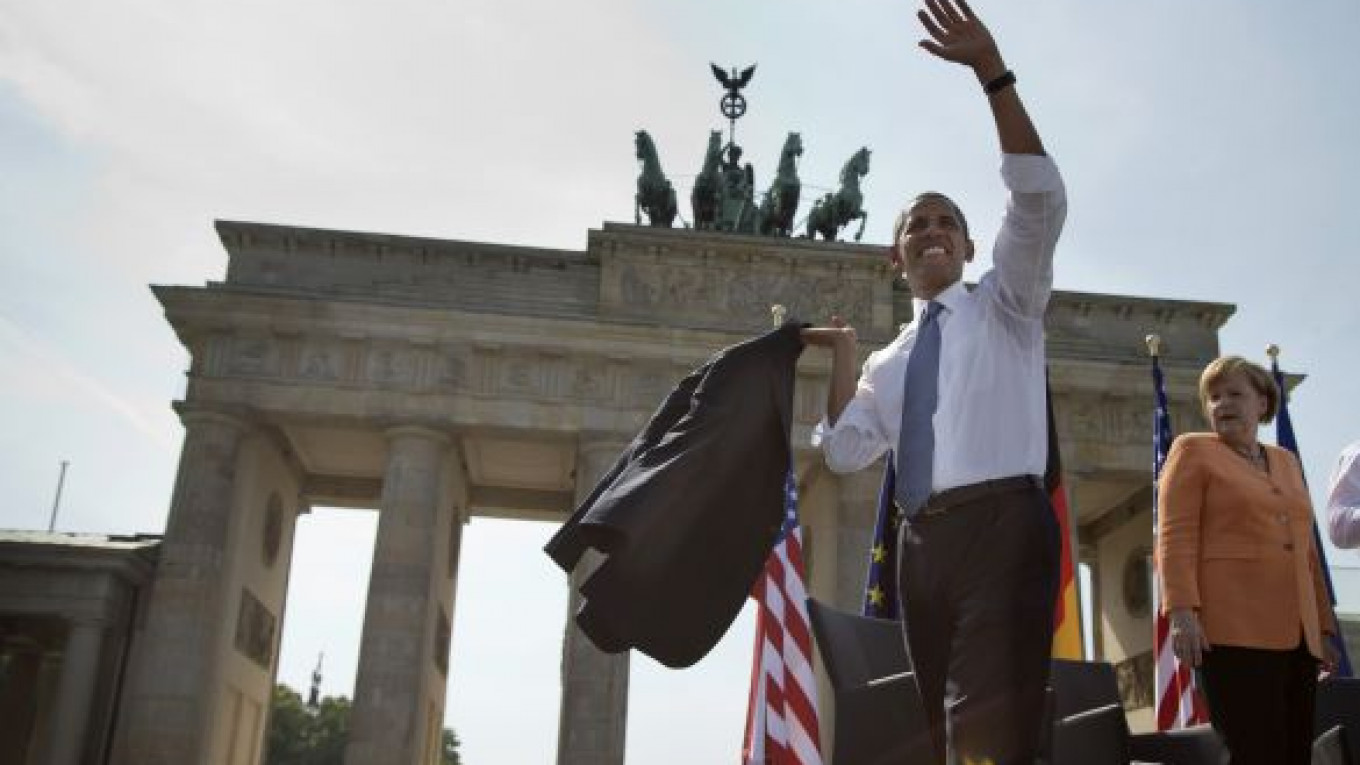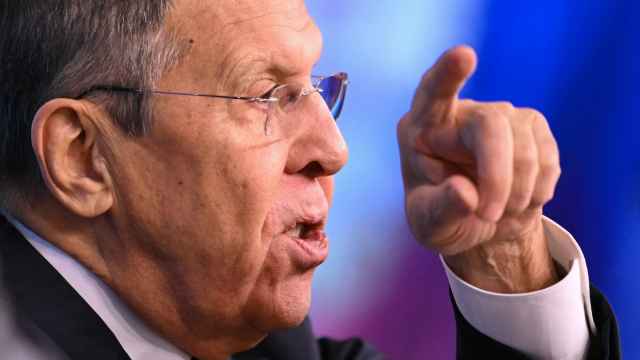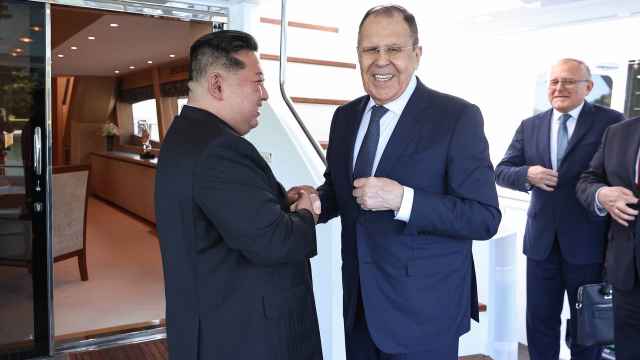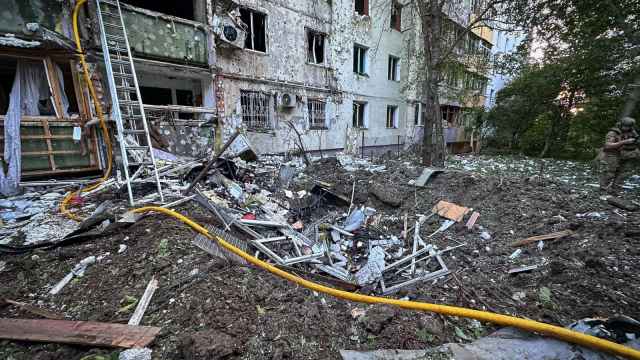WASHINGTON — By saying he intends to bargain with Russia over new reductions in nuclear weapons, rather than make cuts on his own, U.S. President Barack Obama is asking for cooperation from a former Cold War foe in no mood to agree.
Relations between Obama and President Vladimir Putin are tense, reflecting U.S. concerns about human rights abuses in Russia, the two leaders' disagreement over Syria's civil war and other points of contention.
That does not mean the U.S. will not eventually shrink its arsenal beyond what is required by an existing U.S.-Russia treaty that took effect just two years ago. It probably will. But it might not happen on Obama's watch.
With U.S.-Russia relations tense, there appears to be little room for agreement on new arms reductions.
Obama declared in Berlin on Wednesday that he wanted to cut the number of U.S. nuclear arms by another one-third, which would shrink the total to between 1,000 and 1,100 weapons for bombers and land- and sea-based missiles. He did not explicitly rule out doing this unilaterally, but he said he intended to "seek negotiated cuts" with Russia, an approach some nuclear disarmament advocates said could lead to a dead end.
Bruce Blair, co-founder of Global Zero, an international group that advocates the eventual elimination of nuclear weapons, said negotiating a new treaty with Moscow would be "practically a death knell for arms control," in part because there is strong opposition in the Senate to making any further reductions in U.S. nuclear arms.
Those opponents wasted no time denouncing Obama's plan.
Sen. Kelly Ayotte, a Republican, called it "misguided and dangerous." Sen. Mike Enzi, a Republican from Wyoming whose state hosts one of the military's three intercontinental ballistic missile bases, accused Obama of trying to "appease" Russia while paying too little attention to nuclear threats from North Korea and Iran.
Sen. Bob Corker, a Republican who opposes nuclear cuts, said Secretary of State John Kerry assured him on Tuesday that any further reductions would occur in treaty negotiations with Russia, subject to Senate ratification.
Rep. Howard "Buck" McKeon, the Republican chairman of the House Armed Services Committee, said Obama's approach "strains credulity" in light of what McKeon called Russian "cheating" on an existing nuclear arms control treaty. He did not elaborate, but in letters to Obama in February and April, McKeon said the unpublicized Russian violations were significantly destabilizing the U.S.-Russian nuclear arms relationship.
What's more, the Russian government seems to have little interest in engaging in nuclear negotiations under terms favored by the Americans — namely, that the reductions include the large number of Russian nuclear missiles within range of NATO allies in Europe, such as the Czech Republic, that once were in the Soviet bloc. The Russians also want any nuclear negotiations to include other nuclear powers like China and Britain.
Among the things the Russians are upset about is the U.S. missile defense system in Europe, which they regard as a potential threat to the viability of their own nuclear arsenal. Washington and Moscow have been arguing over this for years, and the U.S. position remains that it will not agree to any limitations on its missile defenses. In fact, the Pentagon earlier this year said it intends to bulk up its missile defenses even further.
So there appears to be little room for agreement with the Russians.
Shortly after taking office, Obama declared a vision of a world without nuclear weapons. And his administration won Senate ratification of the New START treaty, which took effect in February 2011 and requires the U.S. and Russia to reduce the number of their strategic nuclear weapons to no more than 1,550 by February 2018.
As of April, the latest counting period, the U.S. had 1,654 such weapons and the Russians were already below the New START limit at 1,480.
Obama's Berlin speech marked the culmination of more than a year of his administration's work on realigning the military's nuclear war planning with the president's goal of reducing the role of nuclear weapons in U.S. security policy. That means not only reducing the number of weapons but also adjusting their alert levels.
In a fact sheet published to elaborate on Obama's speech, the White House said he had directed the Pentagon to align U.S. defense guidance and military plans with Obama's instruction that the U.S. "will only consider the use of nuclear weapons in extreme circumstances" to defend its vital interests or those of its allies and partners.
Related articles:
A Message from The Moscow Times:
Dear readers,
We are facing unprecedented challenges. Russia's Prosecutor General's Office has designated The Moscow Times as an "undesirable" organization, criminalizing our work and putting our staff at risk of prosecution. This follows our earlier unjust labeling as a "foreign agent."
These actions are direct attempts to silence independent journalism in Russia. The authorities claim our work "discredits the decisions of the Russian leadership." We see things differently: we strive to provide accurate, unbiased reporting on Russia.
We, the journalists of The Moscow Times, refuse to be silenced. But to continue our work, we need your help.
Your support, no matter how small, makes a world of difference. If you can, please support us monthly starting from just $2. It's quick to set up, and every contribution makes a significant impact.
By supporting The Moscow Times, you're defending open, independent journalism in the face of repression. Thank you for standing with us.
Remind me later.






